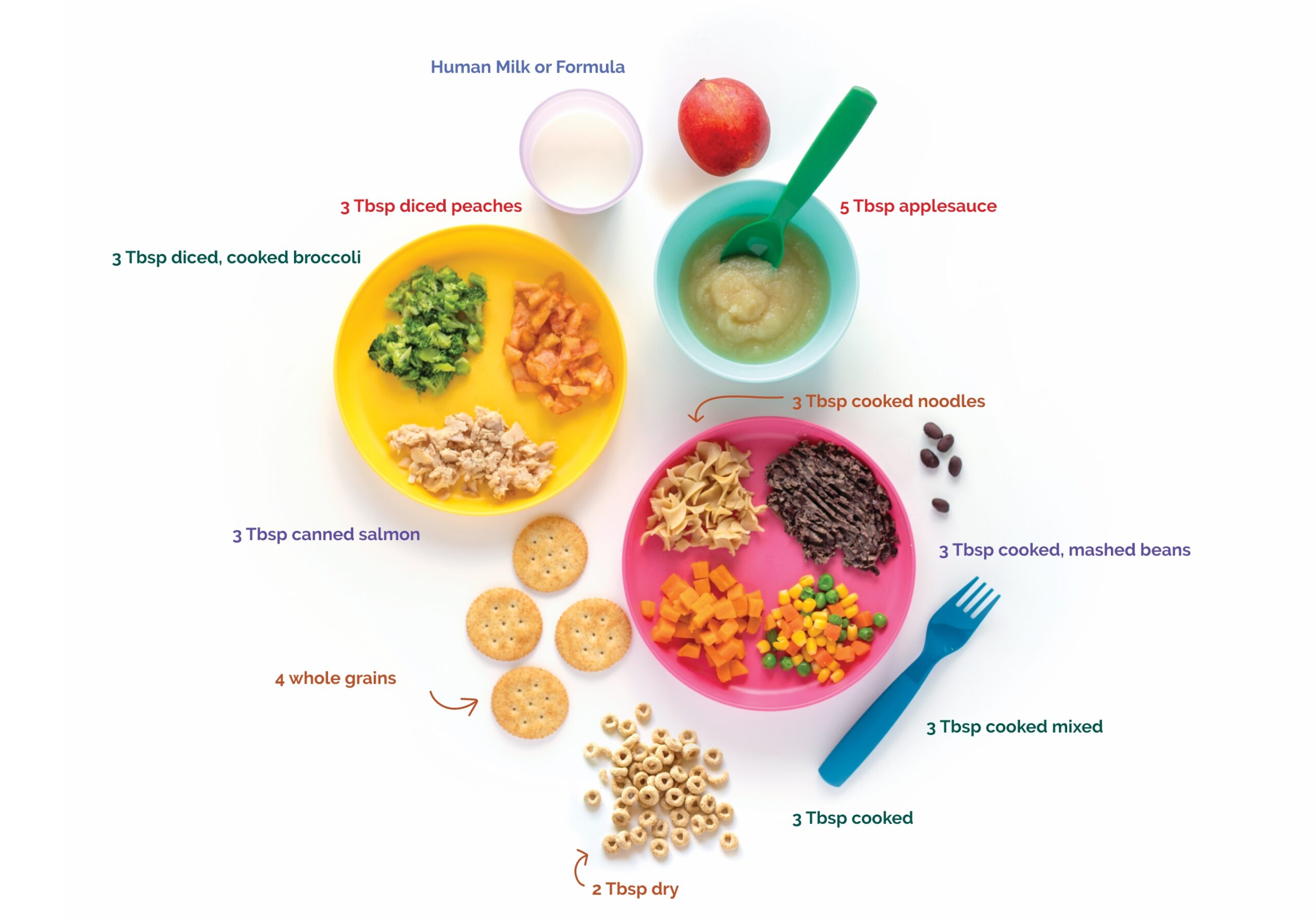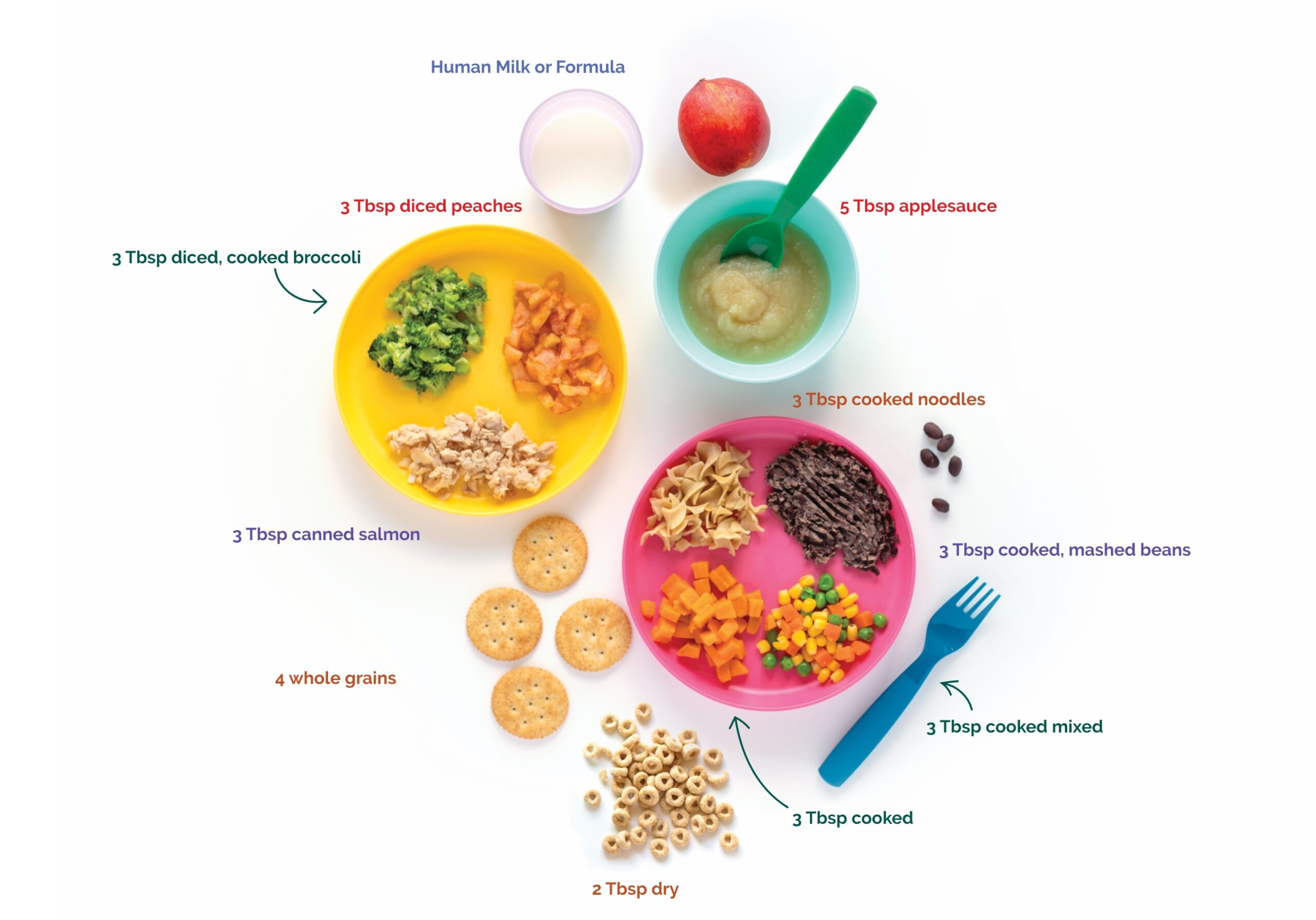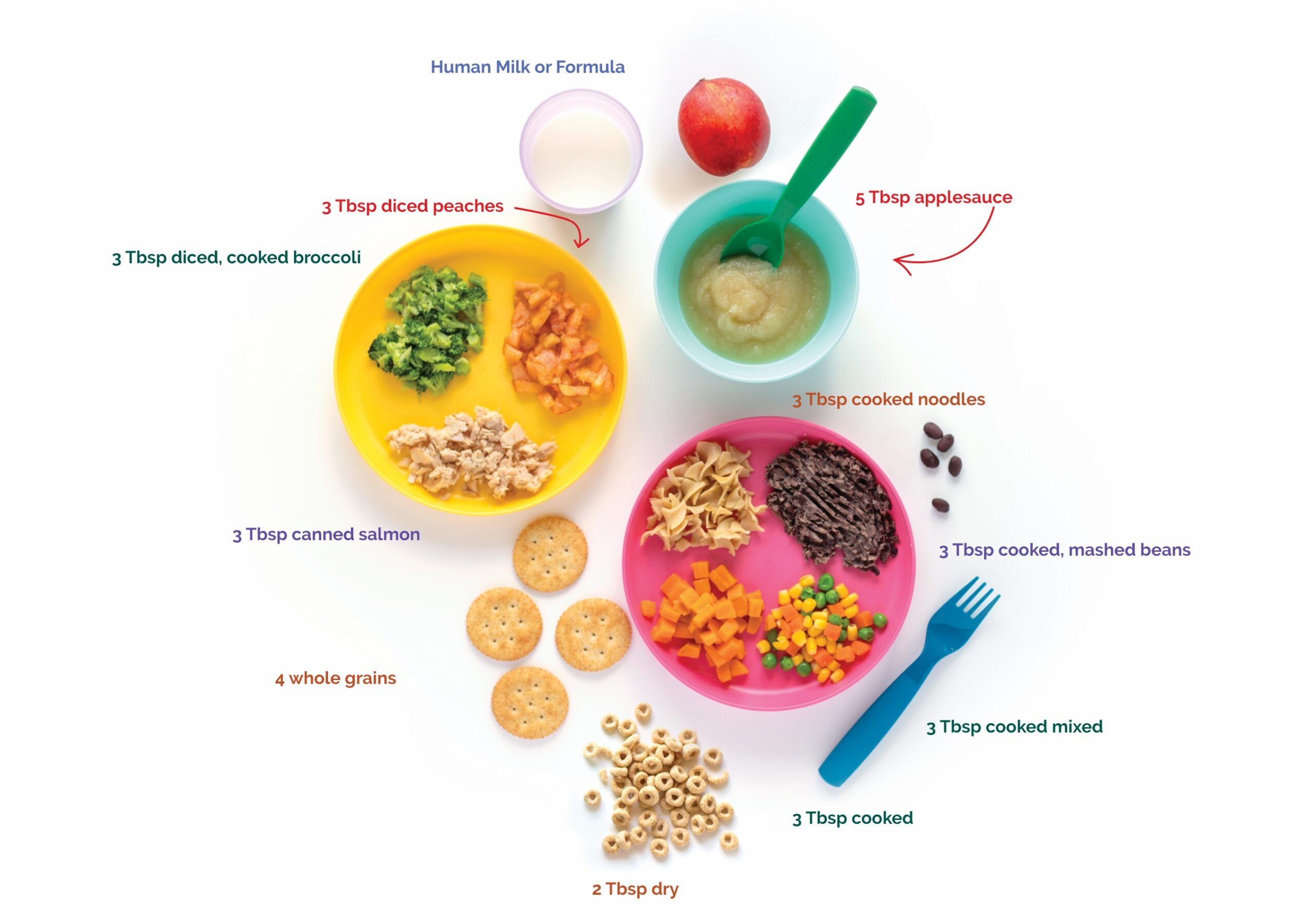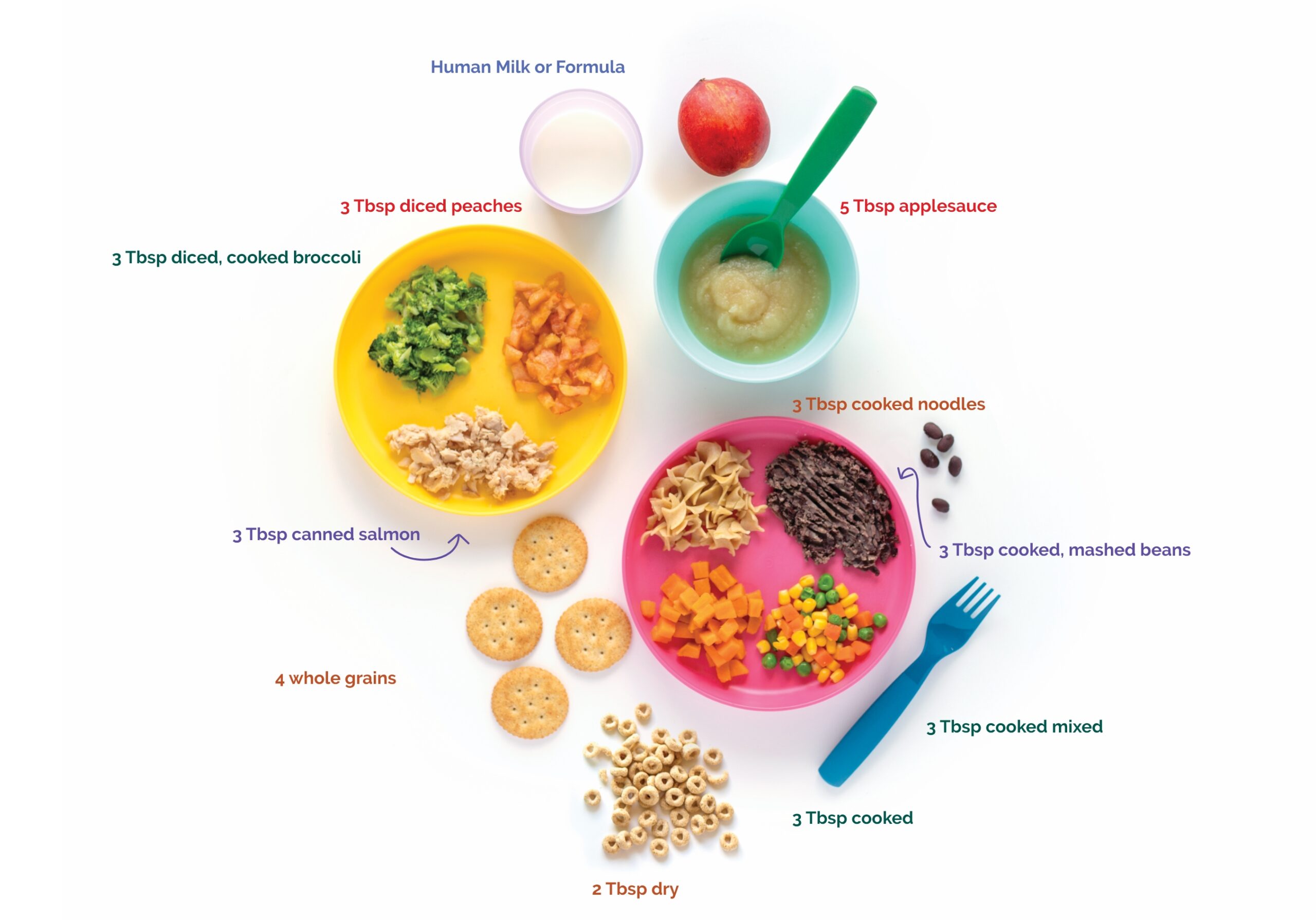
Weaning is the process of slowly giving your baby other foods while you continue to breastfeed.
It is a natural stage in your baby’s growth.
When To Wean
Your Baby
It’s easiest and most comfortable to wean when your baby starts the process. For most babies, this happens when they are getting more of their nutrition from solid foods. Babies who are ready to wean usually do so gradually. Over several weeks, baby will drop one breastfeeding session at a time. Eventually, baby will only nurse once a day or less.
If you wean your baby from breast milk before baby is 12 months old, then you will need to supplement their diet with infant formula. Keep in mind that babies should not drink cow’s milk before their first birthday.
Your baby’s age, the typical number of times you breastfeed each day and whether your baby is ready to wean can affect how long the weaning process takes.
Weaning may pause or slow down if:
- Your baby is sick or teething
Baby may need the extra comfort and antibodies from breastfeeding
- A major change has occurred at home
Try not to start weaning when you first return to work or school
- Your baby is struggling to wean
If your baby is resisting, they might not be ready. Try again in another month or two.


When you and your baby are ready to wean:
- Try a “don’t offer, don’t refuse” approach for one nursing session at a time. This means, at the usual feeding time, don’t automatically offer your breast. But if your child asks to nurse, don’t refuse. Typically, the last breastfeeding sessions babies drop are the ones before they fall asleep or after they wake up.
- This assists with weaning and helps your baby start a new routine.
- When you would normally breastfeed, distract your baby with an activity. Reading a book with your baby is a special way to bond in place of breastfeeding.
- Weaning can be emotional for both of you.























